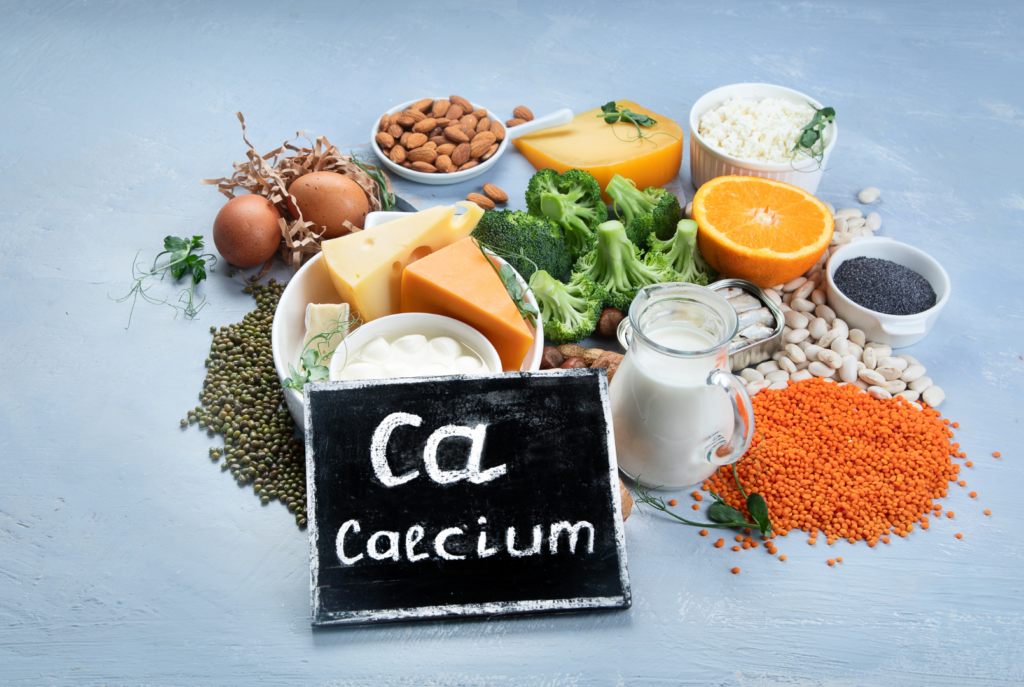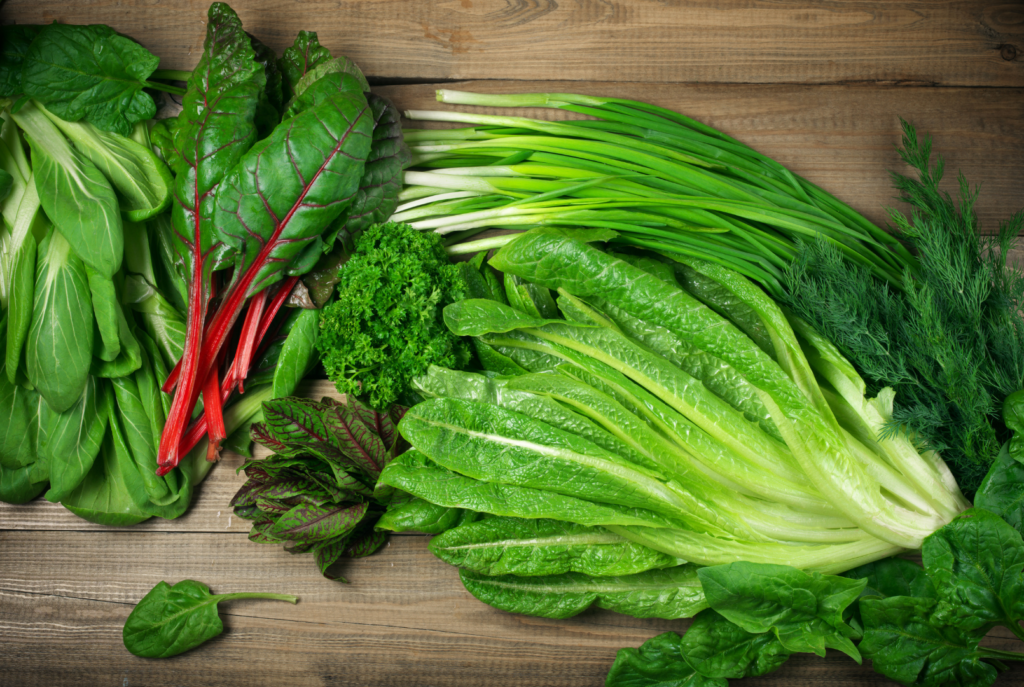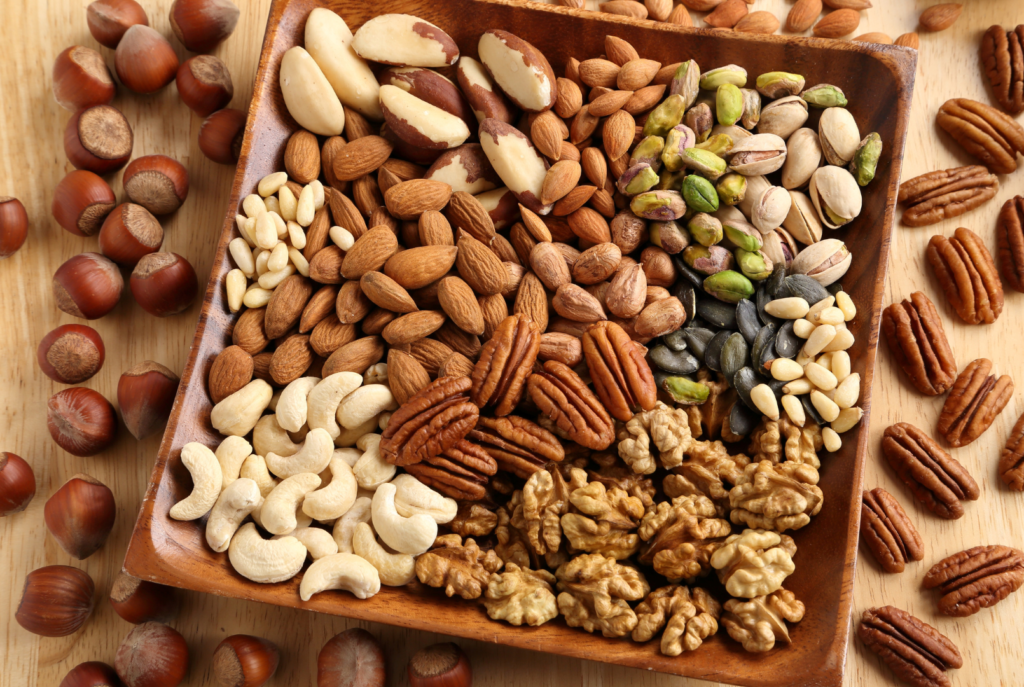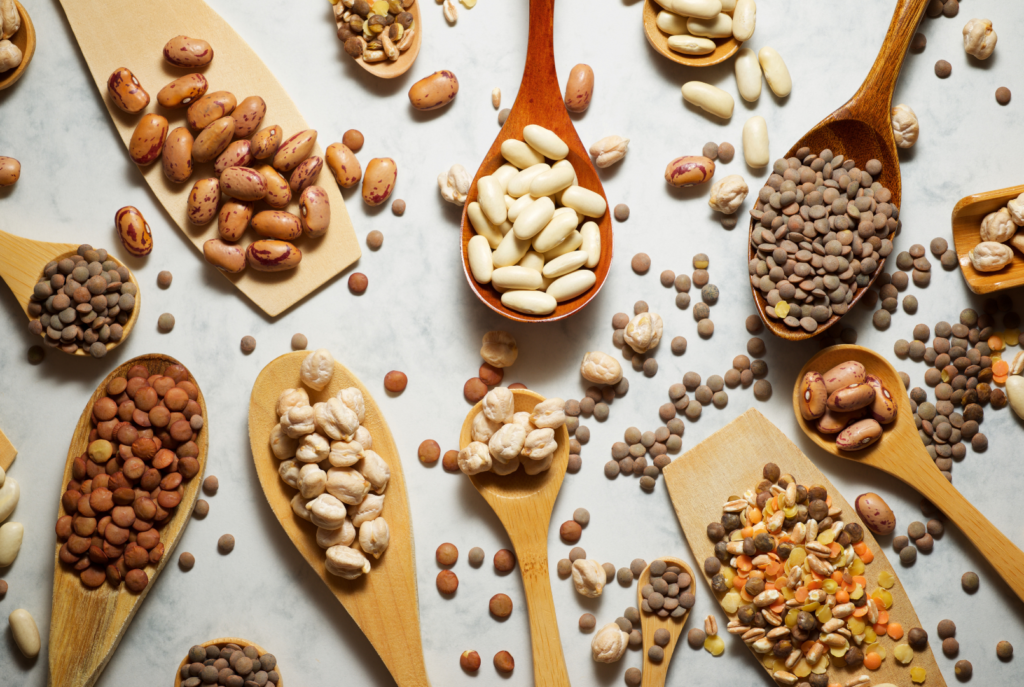

Table of Contents
Strong bones are the foundation of a healthy life, and calcium is the key to building and maintaining that strength. From childhood to old age, calcium plays a vital role in supporting bone density, muscle function, and overall well-being. However, many people fail to meet their daily calcium needs, increasing the risk of fractures and osteoporosis. In this blog, Dt. Anup Agharwal shares expert advice on the importance of calcium and practical tips to incorporate calcium-rich foods into your diet for optimal bone health.
What is Calcium?
Calcium is a vital mineral that is essential for various functions in the body. It is the primary component of bones and teeth, providing them with strength and structure. Beyond its role in skeletal health, calcium is also involved in numerous physiological processes, including blood clotting, muscle contraction, and nerve signaling.
Why is Calcium Important?

Calcium is needed to maintain strong bones and overall health. It helps in building bone density during childhood and adolescence, and it ensures that bones remain strong as you age. Additionally, calcium supports muscle function, aids in nerve communication, and helps regulate your heartbeat.
Because the body cannot produce calcium on its own, it’s important to get it through your diet. Without sufficient calcium intake, the body begins to take calcium from your bones, leading to potential long-term health issues such as osteoporosis and weakened bone structure.
The Impact of Calcium Deficiency
Calcium deficiency, also known as hypocalcemia, can manifest in several ways, such as:
- Bone Weakness and Osteoporosis: This leads to an increased risk of fractures.
- Muscle Problems: Spasms, cramps, or even difficulty in muscle function.
- Dental Issues: Loss of calcium can weaken teeth.
- Delayed Growth in Children: A serious concern for growing kids.
Preventing these conditions is easier than treating them. Incorporating calcium-rich foods into your diet is a natural and effective solution.
Recommended Dietary Allowances (RDA) for Calcium
Calcium requirements vary across different age groups and physiological conditions. Meeting these recommendations ensures optimal bone health and overall well-being. Here is the calcium RDA for 2023:
For Men:
- All categories (sedentary, moderate, and heavy work): 1,000 mg/day
For Women:
- Pregnant women: 1,000 mg/day
- Lactating women: 1,200 mg/day
For Infants:
- 0-6 months: 300 mg/day
- 6-12 months: 300 mg/day
For Children:
- 1-3 years: 500 mg/day
- 4-6 years: 550 mg/day
- 7-9 years: 650 mg/day
- 10-12 years (boys and girls): 850 mg/day
- 13-15 years (boys and girls): 1,000 mg/day
- 16-18 years (boys and girls): 1,050 mg/day

Try the Indian Food Calorie Calculator now and know your daily energy needs instantly.
Why Do Pregnant and Lactating Women Need More Calcium?
During pregnancy, calcium is essential for the developing baby’s bones and teeth, as well as for the mother’s own health. Lactating women also require additional calcium to produce breast milk and maintain their bone strength.
Key Takeaway: Ensuring adequate calcium intake through diet or supplementation is crucial for meeting the body’s needs at every stage of life.
Top 5 Calcium-Rich Foods for Strong Bones
Here are the top five calcium-rich foods recommended by Dietitian Anup Agarwal:
Dairy Products

Dairy products like milk, yogurt, and cheese are some of the richest sources of calcium. One cup of milk contains approximately 300 mg of calcium, covering about 30% of the daily recommended intake.
Tips to Include:
- Add a glass of milk to your breakfast.
- Use yogurt as a base for smoothies or snacks.
- Include cheese in sandwiches or salads.
2. Green Leafy Vegetables

Dark green vegetables such as kale, collard greens, and bok choy are excellent non-dairy calcium sources. For instance, one cup of cooked collard greens provides 268 mg of calcium.
Tips to Include:
- Stir-fry kale with garlic for a healthy side dish.
- Add spinach to your smoothies.
- Use bok choy in stir-fried dishes.
3. Fatty Fish

Fish like salmon and sardines are not only rich in omega-3 fatty acids but also calcium, especially if you eat their bones. A 3-ounce serving of canned salmon contains around 180 mg of calcium.
Tips to Include:
- Add canned salmon to salads or sandwiches.
- Grill sardines for a quick snack.
- Use salmon in pasta or rice dishes.
4. Nuts and Seeds

Almonds, sesame seeds, and chia seeds are among the top plant-based calcium sources. Half a cup of almonds provides around 190 mg of calcium.
Tips to Include:
- Sprinkle chia seeds on your oatmeal.
- Use almond butter as a healthy snack.
- Garnish dishes with sesame seeds.
5. Legumes

Legumes like beans, lentils, and chickpeas are versatile and nutrient-packed. A cup of cooked white beans can provide approximately 190 mg of calcium.
Tips to Include:
- Add beans to soups or stews.
- Use chickpeas in hummus or salads.
- Cook lentils as a main dish with rice or quinoa.

Expert Tips for Boosting Calcium Absorption
- Pair Calcium with Vitamin D: Vitamin D enhances calcium absorption. Include foods like eggs, fortified milk, and mushrooms.
- Limit Excess Salt and Caffeine: These can interfere with calcium retention.
- Spread Calcium Intake: Divide calcium-rich foods throughout your meals to optimize absorption.
A Balanced Diet for Strong Bones
As Dietitian Anup Agarwal suggests, a balanced diet is the foundation of strong bones. Combine these calcium-rich foods with regular exercise and adequate sunlight exposure for vitamin D.
Conclusion
As Dt. Anup Agharwal emphasizes, maintaining a balanced diet rich in calcium, coupled with adequate vitamin D and a healthy lifestyle, is key to building and preserving bone health. Start incorporating these foods into your meals today and take a proactive step toward a healthier, stronger future!
Frequently Asked Questions (FAQs)
What is calcium, and why is it essential for the body?
Calcium is a vital mineral that supports bone and teeth health, muscle contraction, nerve signaling, and heart regulation. It is essential for overall well-being.
What is the recommended daily calcium intake for different age groups?
According to the RDA 2023:
Infants (0-6 months): 300 mg/day
Children (1-3 years): 500 mg/day
Adults: 1,000 mg/day
Pregnant women: 1,000 mg/day
Lactating women: 1,200 mg/day
What are the best sources of calcium?
Dairy products like milk, yogurt, and cheese are excellent sources. Non-dairy options include leafy greens, nuts, seeds, fatty fish, and legumes.
Why do pregnant and lactating women need more calcium?
Pregnant women require calcium for the baby’s bone development, while lactating women need additional calcium to produce breast milk and maintain their bone strength.
Can calcium deficiency lead to health problems?
Yes, calcium deficiency can result in weakened bones, osteoporosis, muscle cramps, dental issues, and delayed growth in children.
How can I enhance calcium absorption from my diet?
Pair calcium-rich foods with vitamin D sources, such as eggs, fortified milk, and sunlight exposure. Avoid excessive salt and caffeine, which can reduce calcium retention.
Is it possible to get enough calcium without dairy?
Yes, non-dairy sources like kale, almonds, chia seeds, tofu, fortified plant-based milk, and legumes can help meet calcium needs.
What is the role of vitamin D in calcium absorption?
Vitamin D facilitates the absorption of calcium in the gut, ensuring it is utilized effectively by the body.
Are calcium supplements necessary?
Supplements may be needed for those who cannot meet their calcium requirements through diet. Always consult a healthcare professional before starting supplements.
What are some practical tips to include calcium-rich foods in daily meals?
Add milk or fortified plant-based milk to breakfast.
Include leafy greens in salads and stir-fries.
Snack on almonds or sesame seed crackers.
Use canned salmon or chickpeas in salads.
Sprinkle chia seeds over smoothies or oatmeal.

🎯 10+ years of Experience
🎓 10k+ Trained ( 📍 Jaipur )
💪 Helping change people’s lives
🌿 Most trusted lifestyle counselor
